- Details
- Written by: Kamran Mofid
- Hits: 2128
June is a month of roses and roses are flowers of beauty, romance and love
‘If a June night could talk, it would probably boast it invented romance.’- Bern Williams
'Be in love with life and the living and the world will be a better place.'- Kamran Mofid

Photo: RioRoses
"The month of June is probably named after Juno, the wife of Jupiter, and queen of the gods [Hera in Greek mythology]. It was held sacred to her, and was thought by the Romans to be the luckiest month for marriage, since Juno was the Goddess of Marriage. Wherever the goddess went she was attended by her messenger Iris (the Rainbow), who journeyed so quickly through the air that she was seldom seen, but after she had passed there was often left in the sky the radiant trail of her highly-coloured robe. Juno is always represented as a tall, beautiful woman, wearing a crown and bearing a sceptre in her hand, and often she is shown with a peacock at her side, since that bird was sacred to her.
- Details
- Written by: Kamran Mofid
- Hits: 990
‘fix a broken economic system.’- The Guardian Editorial, Friday 21 May, 2021
This leader is welcome news for those of us who have been pointing out the inadequacy and inhumanity of the current and dominant economic model. To appreciate the significance of this editorial in aiding a better understanding of the broken model which has resulted in perpetual crisis, I would like to invite you to read it also:
The Broken Economic Model: Capitalism for the Masses (when they receive all the costs)
and Socialism for the Chosen Few (when they collect all the benefits)
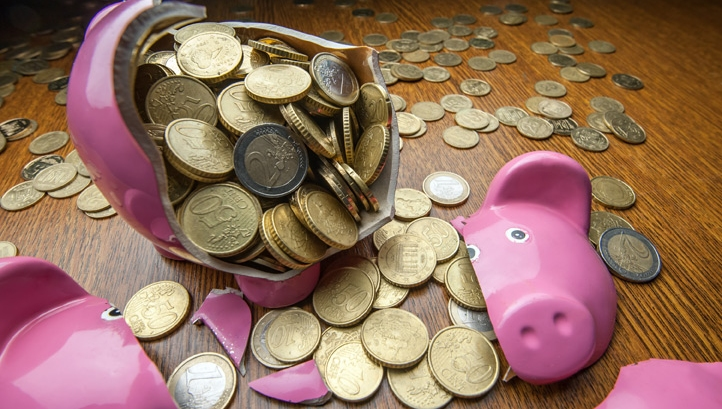
Photo:edie.net
‘The Guardian view on the richest getting richer: fix a broken economic system’
‘Government activism is needed to deal with the baleful and growing levels of inequality in society’
‘The Sunday Times rich list provides a useful social X-ray of Britain. It is a journalistic tool that looks inside high society without damaging its subjects. However, the findings of the latest survey – that the richest have got even richer – have been released when many people have endured a Covid year of hardship, loss and boredom. A preview released on Friday reveals that there are now 24 more billionaires than 12 months earlier, a greater increase than in any year since the list was launched 33 years ago. To have created such a concentration of wealth during a pandemic is an indictment of an economic system that has gone badly wrong.
Earlier this year, the Resolution Foundation revealed the shocking size of the wealth gap in Britain. In 2016-18, some 40% of the population had zero accumulated net wealth. The foundation calculated that if the median household saved all disposable income, it would take at least 400 years for it to reach the average wealth of the richest 1%. Yet this was not the whole picture. The thinktank used the rich list to work out whether the wealthiest people had given national statisticians a full account when itemising their affluence. It turns out that they had not. That meant the top 1% share of wealth in 2018 was not, as officially claimed, 18% but at least 23%. The wealth gap has only yawned wider since.
The rich list highlights the pandemic’s business winners – such as the owner of the online retailer Ocado – and its losers, like the Duke of Westminster’s property empire. Corporate rise and fall is not an explanation for what is going on, however. Much of the gains in household wealth are down to rising financial asset prices rather than business acumen. Thanks to the government’s actions, owners of assets have had a very good pandemic. Shares in London are 17% higher than a year ago, driven up by the search for yields in a low-inflation world. House prices rose by 10.2% in the past 12 months, the highest annual growth rate for 14 years, helped by the chancellor’s stamp duty holiday. There’s no need to do much to increase the value of one’s wealth if one is lucky enough to be well-off.
Adam Smith, paraphrasing Hobbes, wrote that “wealth is power”. The rich in a liberal democracy can buy “friends and servants” to prosecute their interest above all others. Such a person did not have to play an active economic role; they only needed the power that money could buy. This is a bad place for Britain to be headed. Little wonder that half of UK voters believe the economic system needs either major changes or to be completely reformed.
Thomas Piketty, the French economist, argues that if the rate of return on assets exceeds the economic and population growth rates, then the wealthiest, and the elderly among them, race away from the rest. His work has the answer to the question posed by today’s economic model. In the decades after the end of the second world war, the spoils of a growing economy were more evenly shared out. Such a desirable outcome was down to policy choices. Helping to spread out the fruits of growth were high levels of unionisation and strong worker bargaining rights; progressive income tax schemes; and the nationalisation of key industries.
To tackle today’s problems, Mr Piketty suggests adding expanded welfare programmes, a job guarantee scheme and mechanisms to reduce the advantage in inherited wealth. These are ideas whose time has come. A growing wealth gap and increasing inequality has many causes, but one surely has been an economics discipline that disparaged the importance of government. It’s time to rethink that for the good of society.’
……
Time to Rediscover What it Means to Be Human
We value individuality, self-interest and self-reliance, yet, as the COVID-19 Pandemic has so clearly shown us, we are utterly dependent on community and the common good for our most basic needs and indeed, survival.
And now, all said and done, and lest we forget: Nothing will change for the better and no progressive action can be taken, unless, all we do is in the interest of the common good. Carpe Diem!
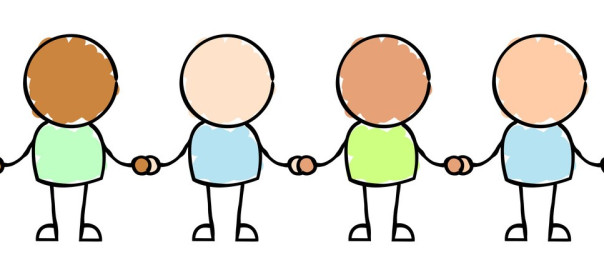
Holding Hands for the Common Good
Photo:nellathink.com
The principle of seeking the common good states that “individual rights are always experienced within the context of promotion of the common good. The common good is about respecting the rights and responsibilities of all people. The individual does not have unfettered rights at the expense of others, but nor are individual rights to be subordinated to the needs of the group.”
In a nutshell, the world today is at a crossroads. We live in a world that promotes working for our own ends, but if we are to survive and flourish it is time to start sacrificing for the common good by working together, nurturing and nourishing our souls and minds, imagining a better life for all.
If we fail to grasp this, then, we will, for sure, pay a very heavy price, both personally and as a nation. We will be all some damaged goods!!
Britain Has Become a Sinking Ship of Systemic Corruption, Cronyism and Chumocracy
Eton mess and the Rise of Kleptocracy
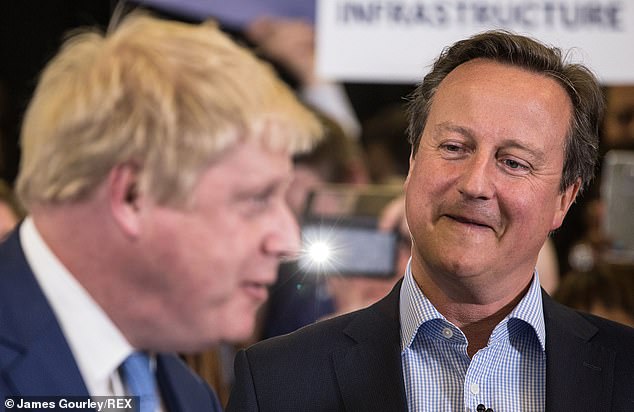
The people who know the price of everything and value of nothing
And this is the Path for the Posh Boys to Become Instruments of the Common Good
Give Up the Soul- Destroying and Heart-Wrenching Neoliberal Economics, 'The Biggest Fraud Ever Perpetrated on the World' and Discover What it Means to be Human.
Lies, damn lies and neoliberal economics and economists
And Discover What it Means to be Human
And Make Education a Subject of Kindness, Love, Compassion and Beauty
And Build the Economy for the Common Good
And Become Posh Boys for the Common Good
All in all, our focus, our vision should involve a democracy where all are of worth; not a few, but the many, the all, the greater good.
In the world today, it seems, we are in the midst of a moral and spiritual revolution that is about creating a democracy of value in which the central focus is love. The task is daunting, but when all of us come together and sacrifice part of ourselves for the common good, there is hope for everyone.
Let us come together for the common good. Let us not deny love to all our children and grandchildren. Our children and future generations deserve our devotion to the notion that the better life and the better world is built on the solid foundation of the common good.
To read and reflect more on the issues raised in this Blog see below:
For the Common Good: Unleashing the Power of Passion & Purpose
A Path to a Spiritual Education for the Common Good: Education for a Just and Sustainable World
Are Universities still for the Common Good? No way! It’s all about Money, Money, and more Money!
Globalisation and Education for the Common Good: A Path to Sustainability, Well-being and Happiness
The Wisdom of "ubuntu": Giving and Sharing for the Common Good
Thanks, Danny Boyle, for Celebrating the Common Good
Quakerism and Economics of the Common Good
Beyond the Wasteland: Seven Common Good Steps to Build a Compassionate World
The rise in global fascism: A failure of education?
Britain today and the Bankruptcy of Ideas, Vision and Values-less Education
Brexit, Trump and the failure of our universities to pursue wisdom
A Reflection on Selfishness and Selfish Business Model
Private education, posh boys and the ruining of Britain:The Story Straight from the horse's mouth
Calling all academic economists: What are you teaching your students?(16 June 2015)
Economics and Economists Engulfed By Crises: What Do We Tell the Students?(22 April 2010)
The Journey to Sophia: Education for Wisdom
In this troubled world let the beauty of nature and simple life be our greatest teachers
Recession, Austerity, Mental, Emotional and Physical Illness
The Damning Impact of a Toxic Philosophy on America: The Tragedy of Ayn Rand
Mr Trump, we are not what we earn!(23 June 2017)
What might an Economy for the Common Good look like?(15 October 2014)
My Economics and Business Educators’ Oath: My Promise to My Students(27 June 2015)
- Details
- Written by: Kamran Mofid
- Hits: 790
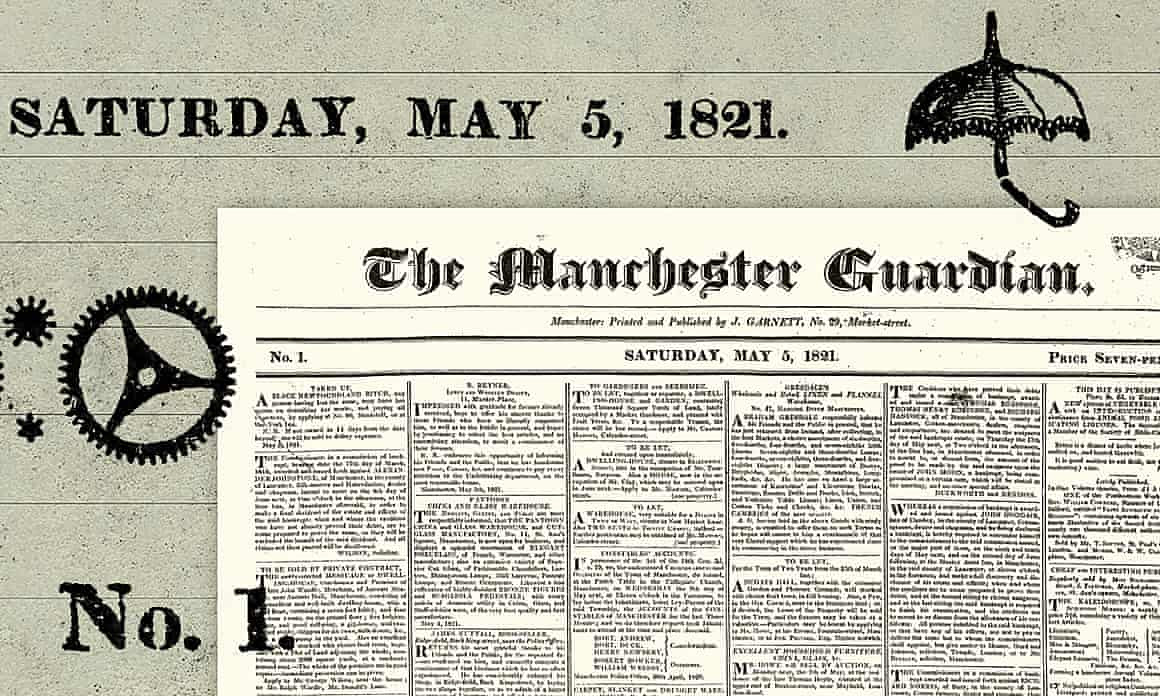
The first edition of the Guardian in 1821. Composite: Miles Probyn/The Guardian
The Guardian’s first ever edition – annotated
Nota bene
On this momentous day I wish to give my heartfelt thanks to a wonderful teacher. In 1972 I attended Oxford College of Further Education studying English as a Foriegn Language. One of my instructors, a very kind lady, as I recall, introduced us to the Guardian. We used to read a few articles a week and discuss them in the classroom.
It goes without saying that, this was life-changing for me. Since 1972 I have been reading the Guardian every single day.
I owe a lot to the Guardian for nourishing and nurturing my intellectual development and for sustaining me in this challenging and troubled world. I would not have been who I am and what I do and believe without the Guardian. For that I can not be grateful enough.
Thank you also to that kind lady in Oxford College for her initial introduction.
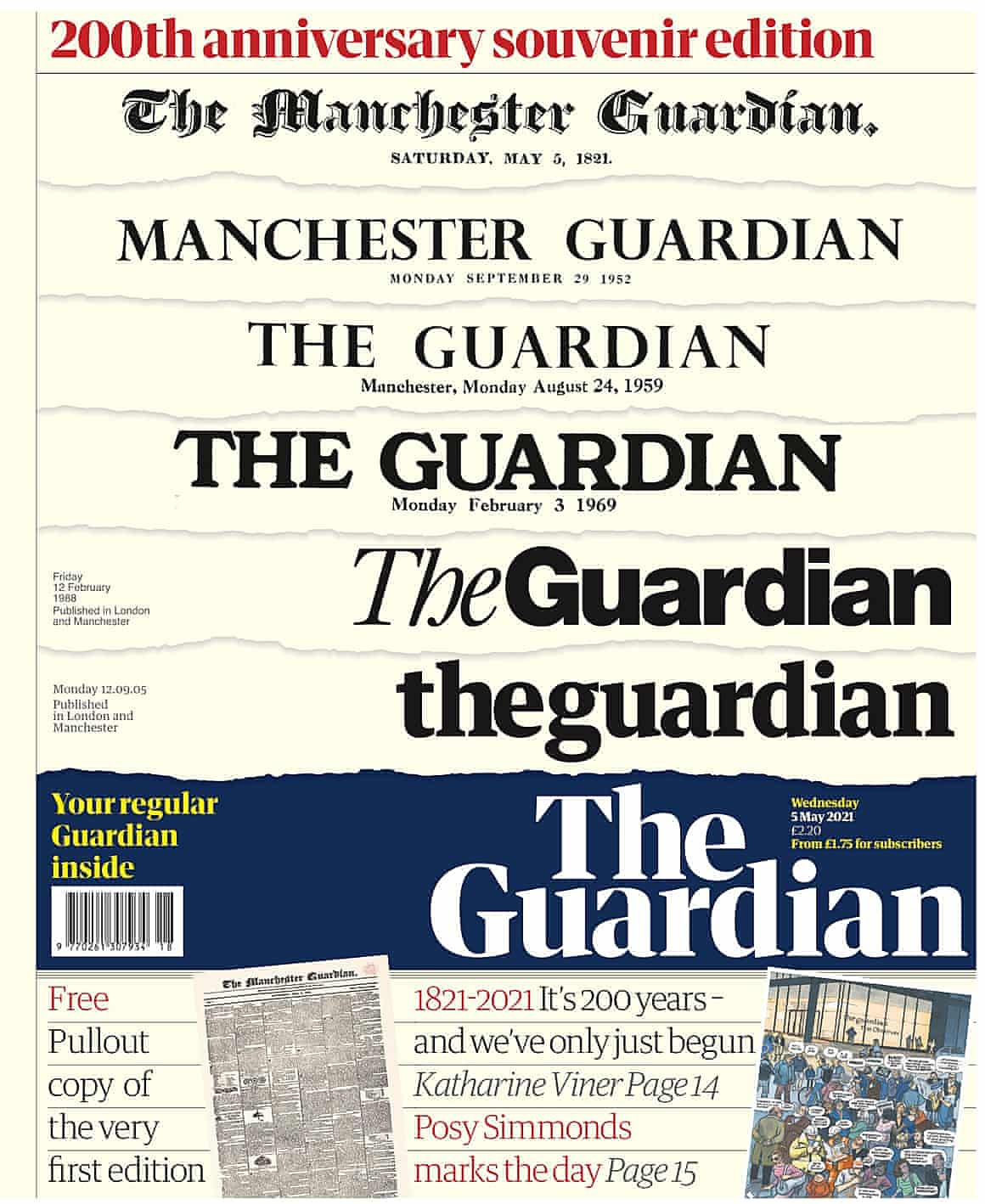
'Today marks a very special moment in the history of the Guardian. It is exactly 200 years since a Saturday in 1821 when, in the aftermath of the Peterloo massacre, a four-page weekly first appeared in Manchester for the princely sum of seven pence. More than 54,000 editions - and several million articles - later, we're proud to say we're older than Germany, fish 'n' chips, the FA Cup, the New York Times, the bicycle and the state of Texas. The Guardian has come a long way since that first print run of 1,000 copies. Now we have tens of millions of readers around the world, and 1.5 million supporters in more than 180 countries. It is your anniversary to celebrate too, as your support galvanises our work, making possible the kind of journalism that makes a difference.'- Katharine Viner, Editor-in-chief, The Guardian
Times change but the Guardian’s values don’t: 200 years, and we’ve only just begun
For me, this is a moment to reflect on what the Guardian is for and where it is going. I had expressed my thoughts and feelings about the Guardian in an earlier posting in 2012 ‘Can the Media be for the Common Good?’ And later on in 2020 ‘I always knew that the Guardian and the BBC are the BEST’
Finally, we should know what a precious gem the Guardian is when we compare and contrast it with Murdoch’s Carnage and His Evil Empire
Happy 200th Birthday dear Guardian and Many Happy Returns.
Kamran
'The Guardian has published more than 5m pieces of journalism since 1821. With the help of staff, readers, supporters and alumni we pick 200 of the most powerful, and ask Guardian staff past and present to reflect on their enduring appeal. Day four: injustice, from race to exploitation.'
- ‘Nature and Me’: A Beautiful and Inspiring Path to repair our relationship with life
- My Poem of the Month: A Celebration of this Sweet and Merry Month of May
- Why have some people been happier during Covid-19 pandemic? This is the Big Question
- Britain Has Become a Sinking Ship of Systemic Corruption, Cronyism and Chumocracy
- I was Boris Johnson’s boss: he is utterly unfit to be prime minister
